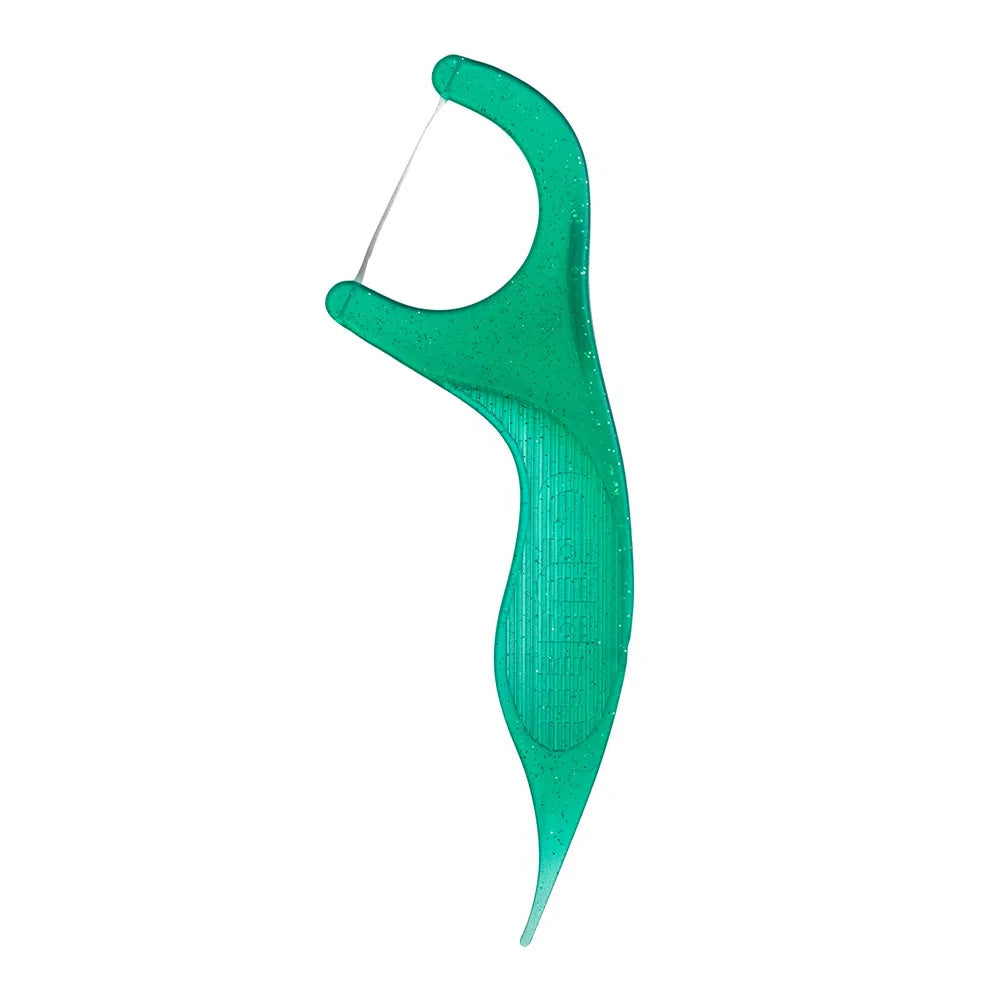
Water Flosser vs. Traditional Floss: Which is Better?
If you practice good oral hygiene, you already know flossing is as important as brushing – if not more essential.
Traditional flossing and water flossers help remove plaque and food particles, which left in the mouth, can lead to gum and periodontal diseases and even gingivitis. However, an old study published in the National Library of Medicine indicated that traditional flossing is slightly more effective at removing plaque than water flossers. But, is it really?
In this article, we discuss water flossing vs traditional flossing to know which works best for removing plaques and preventing gum disease.
Is Water Flosser Better Than Normal Floss?
Water flossers and traditional floss both have their advantages and disadvantages. However, many experts believe that water flossers may be more effective at removing plaque and improving gum health than traditional flossing. Recent studies conducted in recent years comparing water flosser vs. traditional floss: pros and cons also indicate the advantage of using a water flosser for gum health.
For instance, a 2018 study published in the International Journal of Dental Hygiene found that water flossing is more effective at reducing bleeding and improving gum health than traditional flossing. If you’re wondering why water flosser for plaque removal and dental hygiene is more effective, the reasons are surplus.
While string floss can get in-between teeth, it won't easily get into hard-to-reach corners where food particles accumulate. Plus, they can’t fit into the wires and tight spaces around braces or dental implants. Water flossers use a high-pressure stream of water to flush out debris and bacteria where traditional floss won’t reach.
Furthermore, water flossers are less abrasive on the gums. Traditional floss is less forgiving on the gum since they function through a scraping mechanism. Hence, using a water flosser for sensitive teeth means you won't have to do the hard scraping associated with traditional flossing.
Besides, water flossers are easier to use than traditional flossing, especially for people with dexterity issues. Their simple use of water and pressure levels means people are more likely to achieve better results when they use them.
Still, that does not mean that traditional flossing is without its benefits.
Some traditional floss benefits people with braces, bridges, or sensitive gums can enjoy include:
- Traditional flossing prevents the formation of cavities
- It improves bad breath
- It helps prevent gum disease.
Water Flosser Disadvantages
If you’ve never used a water flosser for braces, bad breath, or dental implants, you might be hesitant to try them due to the popular notion that everything has a disadvantage. In truth, people often consider the water flosser disadvantages as being expensive, messy, and hard to use. Then again, these are some common misconceptions.
While a hand-held flossing machine can be more expensive than traditional flossing, they provide long-term benefits, unlike traditional flossers that require you to get new ones regularly. Water flossers use water as their operating source. Hence, the chances of splashing water on the floor are high. However, when used in the shower or over the sink, you can avoid making a mess. Besides the reliability of this home teeth cleaning device, flossing with water makes the whole flossing process easy, especially as many models today feature intuitive controls and comfortable grips that make handling easy.
Can A Water Flosser Replace Regular Flossing?
Using a water flosser for overall oral hygiene has its benefits you should not use them as a traditional flossing alternative. According to the American Dental Association (ADA), water flossing can be used with regular flossing, but not as a substitute. Why? Traditional flossing physically removes plaque and debris, while water flossing may only flush it away. For the best results, dentists often recommend using both as part of their daily oral hygiene routine.
Are Water Flossers Dentist Approved?
Yes, many dentists and dental professionals approve of water flossers as a safe and effective way to ensure good oral hygiene and dental care. The American Dental Association (ADA) has also given its Seal of Acceptance to several water flosser brands, like Waterpik flosser dental water flosser.
When brand products get this seal of acceptance, it signifies that the ADA has evaluated the safety and effectiveness of these products and found them effective at removing plaque and improving gum health when used as directed.
The Best Water Flosser
If you are looking for the best dental water jet for your dental care, Flossmo water flosser is one oral irrigator to consider. This electric water flosser is less fiddly and painful, unlike traditional flossing. The Flossmo water flosser comes with a 360-degree rotatable nozzle that allows you to reach every corner of the mouth to offer deep-cleaning benefits. It is also a good water flosser for periodontal disease and implants, as it comes with four pressure settings that suit every dental need.
So, Which Is Better, Water Flosser or Traditional Floss?
Both methods have their advantages, but water flossers are far more effective as they can reach areas that spring flossers can’t, are gentler on the gums, and are easy to use. Additionally, many dental professionals have approved and recommended water flossers as an effective tool for maintaining good oral health.
That being said, the best choice will depend on individual preferences and needs and any recommendations from a dentist or dental hygienist. Still, remember that a consistent oral hygiene routine is key to good dental health. So, brush and floss daily, and do regular dental checkups to avoid poor oral hygiene.
